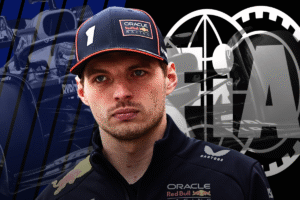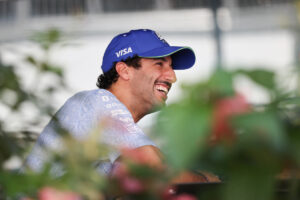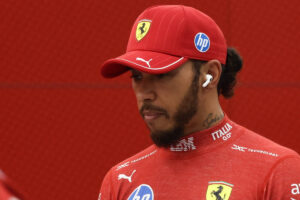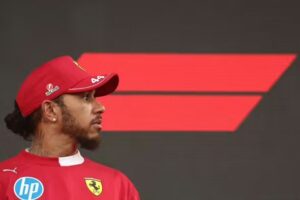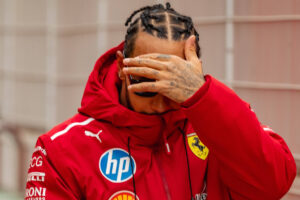Breaking news:F1 CEO Domenicali confirms: ‘Rotating Grands Prix in Europe very close’
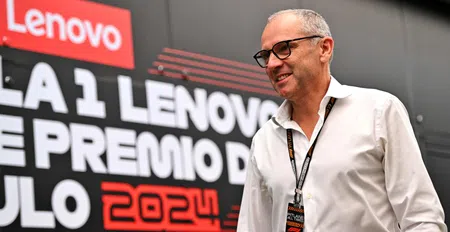
F1 CEO Domenicali confirms: ‘Rotating Grands Prix in Europe very close’
Formula 1 CEO Stefano Domenicali has indicated that the possibility of introducing a rotation system for certain European Grand Prix is approaching, with an announcement expected “very, very soon.” This plan would involve alternating certain venues on the calendar, with Zandvoort and Spa-Francorchamps being the most commonly mentioned examples. The move comes as part of efforts to accommodate the growing number of races on the F1 calendar, which in 2024 will feature a record 24 Grands Prix.
With the F1 calendar expanding to its largest-ever size, there is limited capacity to introduce new venues or even retain all the current ones, especially given the logistical and contractual constraints of hosting races. Many cities and countries are eager to host an F1 event, but with space for only 24 races, some tough decisions must be made. Domenicali’s remarks suggest that a rotational system may be the solution to this problem, allowing the sport to maintain its traditional circuits while also considering new options in the future.
“We are very, very close to finalizing a plan that would allow some European Grands Prix to rotate,” Domenicali shared during a recent meeting with Liberty Media investors. He further explained that the new system would offer more flexibility for both iconic venues and new destinations, helping to accommodate the rising demand for races in different regions. Although Domenicali did not go into detail, the plan appears to be a strategic move to keep the calendar balanced while ensuring that F1 remains open to future growth and expansion.
The potential rotation system would likely affect a number of European venues. Currently, there are 10 European Grand Prix scheduled for the 2024 season, including Baku, which is geographically located in Europe but situated in Asia. Some of these tracks have contracts in place extending well into the 2030s, such as the ones for Monza, Spa-Francorchamps, Zandvoort, and Monaco, though it is unlikely that Monaco will ever be removed from the calendar due to its status as one of the sport’s most iconic events.
However, some of the contracts for venues like Monza, Spa-Francorchamps, Zandvoort, and Monaco are set to expire after the 2024 season, which makes it a pivotal moment for F1 as it evaluates its options. While the status of Monaco is almost certain, the other venues could face changes, with rotation being one of the tools to manage this transition. The idea behind rotating races is to balance the sport’s tradition with the desire to explore new territories and markets.
Domenicali further emphasized that the current F1 calendar, with its 24 races, represents the ideal balance in terms of race numbers. Under the existing Concorde Agreement, F1 has the capacity to host up to 25 races in a season, but the CEO believes that 24 is the right figure for now, ensuring that both teams and fans do not experience burnout while still maximizing the sport’s global appeal. The expansion of the calendar has been a double-edged sword, providing more excitement but also putting pressure on logistics, team schedules, and even the drivers themselves. Despite this, Domenicali is optimistic about the direction F1 is heading, saying that the growing number of proposals for new races will allow the sport to make better, more informed decisions about future race locations and formats.
Although details on the rotation plan remain sparse, the rotation system for European races would help F1 address the challenges of managing an increasingly crowded calendar. The strategy also gives long-term options for fan engagement and makes space for emerging markets without diminishing the significance of traditional venues. With the sport’s continuing expansion into new global markets and its continued popularity, F1’s leadership seems committed to balancing tradition with innovation to secure its future while keeping the sport exciting for fans around the world.
As the 2024 season approaches, fans, teams, and stakeholders will likely be keeping a close eye on any official announcements about the rotational plan. If it is implemented, it could mark a new era for Formula 1, where both the historic tracks and newer destinations can coexist on a calendar that’s growing ever more global in scope. The next few months are expected to bring more clarity on how these changes will unfold, but for now, the anticipation of a rotating European Grand Prix remains one of the most talked-about topics in the F1 community.

